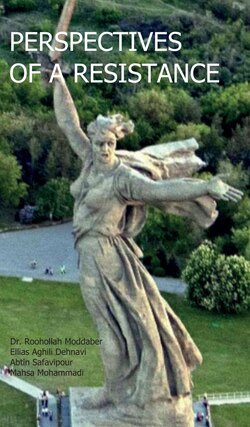Читать книгу Perspectives Of A Resistance - Ellias Aghili Dehnavi - Страница 6
На сайте Литреса книга снята с продажи.
ОглавлениеActive Russia in international system:
Since 2000 and onwards, the trend of the Russian Federation presence in international relations has changed. Russian authorities have made great effort to implement their grand strategies for a stable and effective presence in international relations.
In other words, after drafting a formulation of various special multifaceted strategic plans, encompassing "Economic, military and cultural" missions, the world eyewitnesses the Russian Federation's special role in global equations and stability as an effective broker in international relations and important decision-maker even for the structure of the international system. Although this stability and influence may not be pleasant to Americans and Europeans, it cannot be diminished.
For instance, since the first Soviet Union’s astronauts Yuri Gagarin (1961) and then Valentina Tereshkova (1963) stepped out of the atmosphere, the Russian Federation's space industry has been ranked first in the world today. Other countries, especially the United States, are still lagging behind in competition with Russia and are far behind Russia's advanced aerospace technology.
Nowadays, it is naïve approach to regard the Russia solely for the sake of having advanced military weapons, energy reserves, territories, and its specific geopolitical conditions. Russia is now highly ranked in all aspects of development, especially cultural power.
Increasing economic growth rates, expanding foreign investment, attracting academic elites, developing tourism industry and the number of foreign tourists, moving towards creating economies and productions instead of crude sales, entering the field of modern and luxury automotive industries with the potential to compete with Europe; Cultural strategic plans comply with "Russian identity in the integrated land" program; "Developing a plan for the new generation and youth diplomacy" and coherentism in accordance with a centralism approach, maximizing attraction and creating community cohesion in a country with large number of ethnicity, race diversity, and religion and use this diversity in developing cooperation, friendships and the maximum participation of young people trained in the field of macro-management of the country are notable examples.
Beyond the aforementioned examples, the presence of Russia in the two regions of Eurasia and the Atlantic with the policy of "realistic centralism with the tools of pragmatism", which is Vladimir Putin's foreign policy doctrine, has made the Russian Federation's international relations strategy a decisive one in the global strategic equations alongside the United States, and even in competition with the United States, which limits and reduces the depth of influence and unilateralism of the Americans in the international arena. This fact has led international relations experts to pursue multipolar world theory with a stronger emphasis on Russian polarity.
